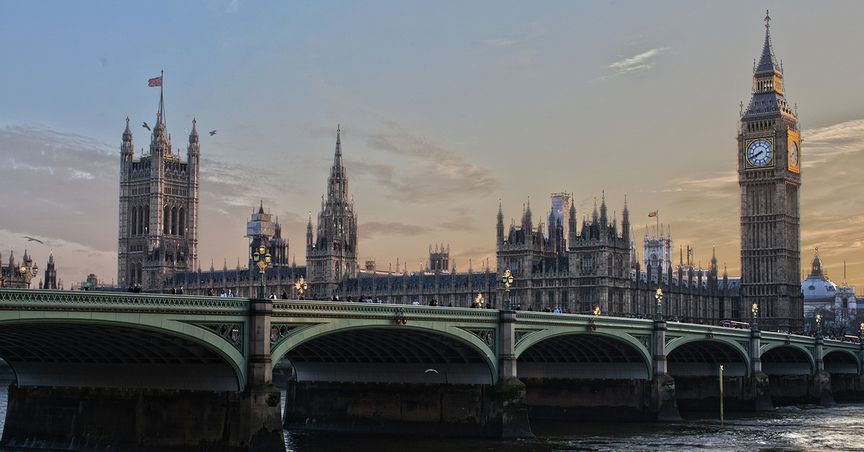Summary
- The nation’s economic growth would get more than halved, says KPMG
- UK’s ability to cope with the pandemics shall be impacted
- British companies not ready for an unfavorable outcome, Nissan’s UK business difficult to sustain without a deal, says its COO
The failure to strike a favourable post-Brexit deal is going to be disastrous for Britain in more ways than one. From a steep fall in the economic growth to a lower ability to attend to a pandemic health emergency, a lot of things are at stake. Let us take a closer look.
A recent report by the accountancy firm KPMG has highlighted that a no-deal would slash Britain’s economic growth by more than half, to 4.4 per cent in 2021, delaying the nation’s recovery from the coronavirus pandemic. The firm expects the UK GDP (gross domestic product) to touch a value of 10.1 per cent if a favourable deal gets worked out between the UK and the EU.
Moreover, the OECD (Organisation for Economic Co-operation and Development) has said that the British economy would shrink by 6.5 per cent in the next few years to come, in case UK failed to secure an FTA with the Union.
The Brexit transition period expires on 31 December 2020, just as the nation is on the verge of a double dip recession with stricter restrictions in place. The mutual trade between the 2 sides is roughly worth $1 trillion annually.
The forecasts come as talks between Brussels and London reach their crucial final phase. Both the sides are unable to arrive at a consensus over areas such as fishing rights and rules for fair competition.
British businesses are ill-equipped to cope with the border disruptions, especially after ailing for months due to the crisis triggered by the pandemic. Apart from a hit in the cross-border trade, the foreign direct investment into the UK is also likely to taper off.
Earlier, Carolyn Fairbairn, the director-general of the CBI (Confederation of British Industries) had called upon the government to hurry up the process of negotiations. She insisted that a deal was required to protect jobs at a time when the businesses were struggling to survive.
Ian Wright, chief executive, Food and Drink Federation said that in the absence of a deal, food security would be at risk, pushing up the retail food prices. The UK car industry could suffer with an almost 30 per cent drop in exports.
Nissan
Britain’s exit from the Union could threaten the sustainability of Nissan’s operations, said Ashwani Gupta, the COO of the Japanese car manufacturer.
The company employs 7000 people in Britain at its Sunderland plant. He said that with higher tariff barriers in place, the company’s cost of production will rise. Delays in raw material supply from overseas would also hamper its manufacturing operations, said Gupta.
The company negated any media reports which said that it was seeking compensation from the government for the increased costs in a no deal scene.
In March this year, the auto maker had announced that it was going to invest £52 million at the plant for an expansion. It builds Leaf electric cars there.
A rise in organised crime?
A Brexit without a deal is a potential bonanza for organised crime, said Naomi Long, Justice Minister, Northern Ireland Executive. Crime could rise by exploiting the north-south border on the island of Ireland, insisted Long, to skip the trade barriers in place. Brexit would leave Northern Ireland with no formal security arrangement between the two sides.
Northern Ireland would thus have zero access to the European Arrest Warrant and Europol, the law enforcement agency. New trade barriers would also raise the risk of a black economy, added the minister.
Ability to handle pandemics
Despite the ongoing Covid-19 emergency, healthcare related matters have played a minimalistic role in the future UK-EU relations.
In fact, Britain’s wish to control the policymaking side of things is at odds with the European block’s cooperative approach for health security, lament experts.
A continued divergence of views will have lasting public health implications. As an extreme case scenario, it could affect Britain’s ability to build resilience against any future pandemics, medical experts point out.
In case of a no deal, the nation would have absolutely zero involvement in the Union’s public healthcare policies. UK would not be a participant to the EU public health programs, in such a situation.
EU’s warning
The Union has cautioned Britain that it has less than 10 days left to work out a deal, indicating that there is substantial work left with many important elements yet to be resolved.
In case the deal is negotiated, it will come into effect from January 1 next year. EU felt that the UK wanted to retain access to its lucrative markets without following its rules.
Early vaccine
An early vaccine can accelerate the national economic growth from next year. The lifting up of all the social distancing restrictions would particularly benefit aviation and physical retail.
However, even such a big factor would be undermined by Brexit that could single out Britain among advanced economies in 2021.
It needs to be underlined that even with a deal, there are going to be costs that the British economy would have to bear but without an FTA, the hit would be much bigger. For instance, the non-tariff barriers would go up even if a mutual deal is struck between the two.



